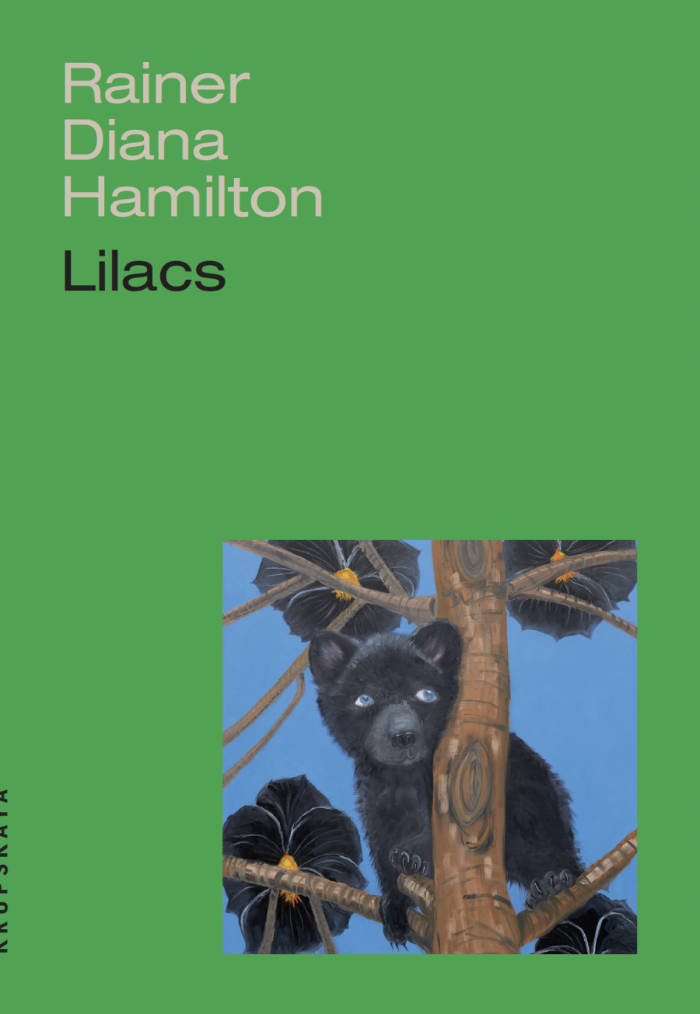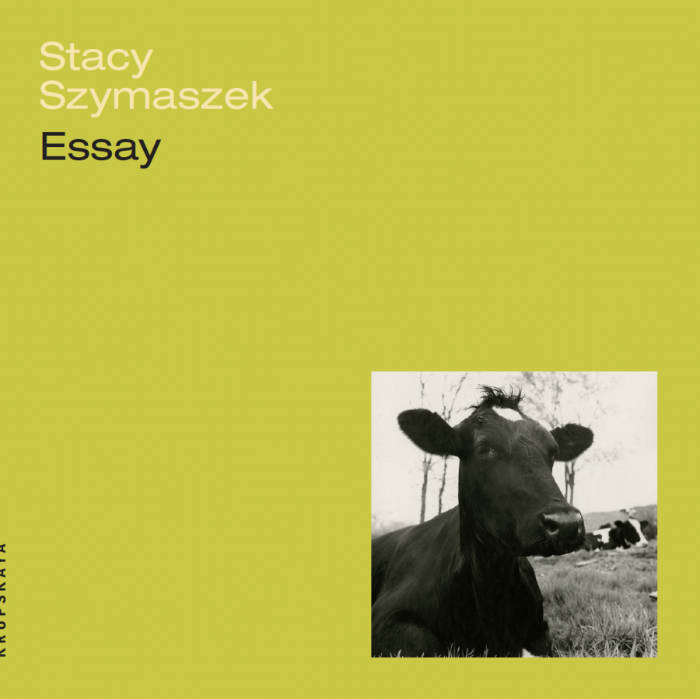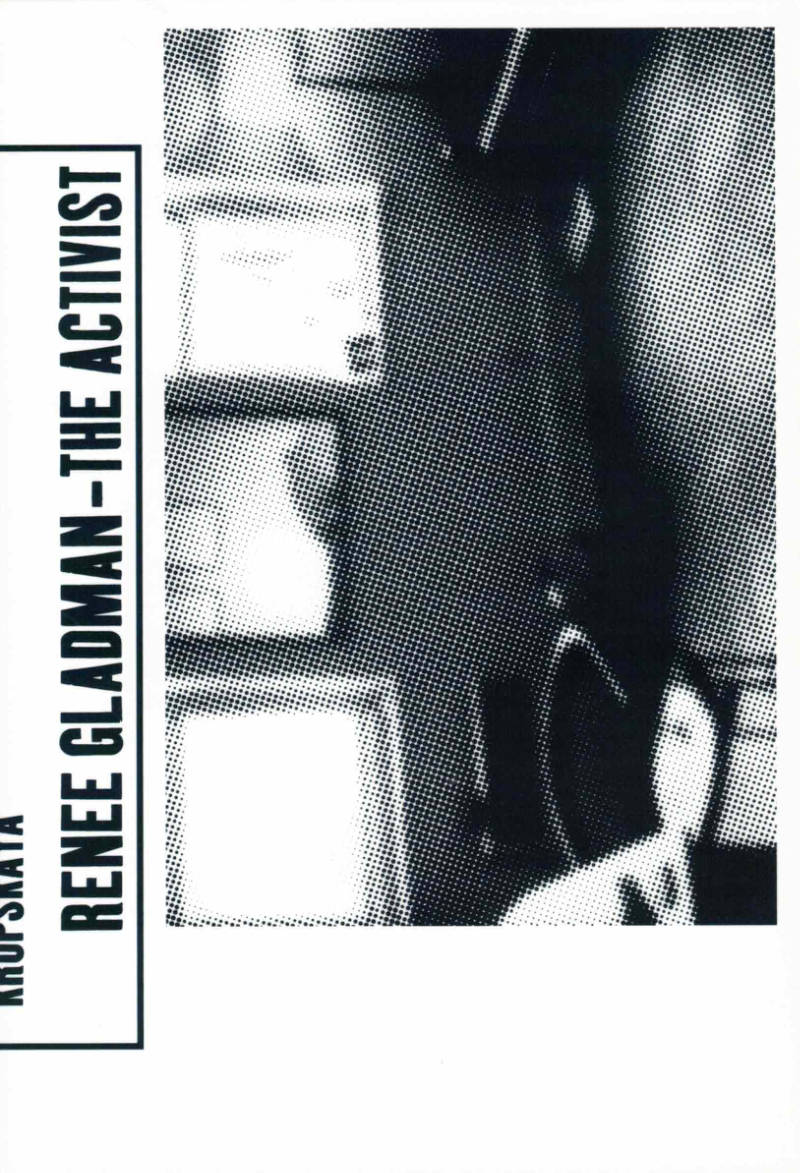Krupskaya Books
Krupskaya Books

Lilacs
In Lilacs, syringa vulgaris gives its name to a form of long poem that promotes sense memory. Here, we have one lilac for each of the senses, and a sixth for love, which synthesizes them all.
Rainer Diana Hamilton is the author of God Was Right and The Awful Truth. They write, broadly, about the forms that dreams and art have taken.
“I wanna ____ all my friends at once”: how would you complete the lyric Arthur Russell wrote for “Go Bang”? In Rainer Diana Hamilton’s hands, “smell” or “touch”—or “talk to,” for Hamilton a near-synonym for “love”—might be more appropriate than Russell’s “see.” Or maybe they’ll have argued us into believing that yet a different faculty counts among the senses, in these poem-essays that swerve from memory to love letter to argument. A narrative of lost and developed capacities, a felt history of class antagonism, a treatise masquerading as a flower, a flower in every organ—Lilacs is rude with ambition, underneath its abundant charm.” —Kay Gabriel
“Every new poem by Rainer Diana Hamilton is a gift in which poetry is made new again.” —Andrew Durbin

Essay
Cow time meets clerical time meets poet time in Stacy Szymaszek’s gently thrilling Essay. These luminous poem-essays flow with the churning propulsion of dailiness: a roving record of the poet’s ruminations alongside the many cows and calves she befriends. Seeking to honor life beyond usefulness, Szymaszek has given us a large-hearted, gorgeous, and wholly riveting meditation on aging queer life and interspecies friendship on the farm and under capitalism. In Essay, the poet notices, marvels, aches, searches, and wants more for all of us. — Megan Milks
Stacy Szymaszek has long been a poet attentive to work, and this attention is of course animated by place – whether the urban quotidian and attendant human dramas of previous books, or her present workplace on a dairy farm in upstate New York. In Essay’s conversational, immediate, vulnerable, affecting and affected poems, Szymaszek turns to cows and to the cow-like exhaustion of humans who labor in service of capital’s voracity. Essay is bent to the workday but not beaten down by it. We are offered a visionary form, boldly attendant to the present, to prolong survival without denying death.“The heart of the matter is to be able to keep / loving in the face of cow-sorrow unspeakable brevity / unpredictability and contradictions.” In Essay, Szymaszek has built a bed of hay where we can break from our labors and daydream about the “livelihood where we can all work / a single day and have enough for the year and the work / of the cows can be ended.” — Alli Warren

The Activist
The Activist begins in the middle of a revolution. There is a protesting group of commuters with a missing leader. There is a bridge that may or may not have been bombed. People speak in nonsense and cannot stop themselves. In the midst of all this, the language of news reporters mixes with the language of confession. The art of this beautifully written book is in how it touchingly illustrates that relations between humans and cities are linked in a more complex interface than most realize. The book is full of entrances and exist, alternate routes and incommensurate geographies. The Activist does not analyze or explain the hopeful desires of protest at the turn of the century, but it does enable us to see them differently. — Juliana Spahr
"Whether this is a dream in which I'm captured or I've been captured and made to think I'm in a dream, I can't figure." Apropos to the rapturous tension The Activist evokes. A covert narrative operating as an event disguised as a repot. A grass trap glimpsed through the lashes of a sleepwalker. Topography of disrupted positionality, reflection girders flaccid memory against the romantic high up. Flea-bitten news and neuralgic placards. You are here**. Is dreaming the medium for crossing the ambiguous borders of talk, responsibility, collectivity, solitude? Or does reading anatomize a phantom bridge that carries you over to an unmappable reality and calls you by your secret name? Root, plan and faction, armed with tongue-tied intensity. You may ask how Renee Gladman knows that this city of slippage is your city, how she holds you within it, riveted. And therein lies the magic of this book. — Tisa Bryant

The Dogs
In Noah Ross's new book THE DOGS, Ross opens the question of authority and possession in what he deems an illicit act of translation. THE DOGS may begin with Herve Guibert's Les Chiens, but through multiple reiterations of translation, Guibert's text ultimately meets Ross to celebrate, among other sources, Marie de France, Teen Wolf, Auden, and Dom Orejudos in establishing a unique pack of hungry werewolves. You know what happens when werewolves get together: the play can get a little rough. THE DOGS empowers these snarls and yips, growls and howls, on the level of the sentence in translation as much as the embodied erotogenic zones of the body.

Comeback Death
Comeback Death, Jennifer Soong's third book, weaves its registers of what Soong names as "dread, gender, sarcasm, sublimation of pain, fruit, ambition, and fecundity" through an English which is not only polyvocal but uncannily porous. Its languages (English, Russian, German, ancient Greek) underscore a perverse pastoral range that somehow bridges Oxford, New Jersey, and Lesbos. With a ferocity both musical and analytic, Soong's third book offers an unprecedented set of tonalities for immense architectures of feeling.
"In Comeback Death, Jennifer Soong dramatizes one of the key problems of our time, and indeed any time, which is how to reorganize the (negative) affects structuring intersubjectivity and thus conditioning our capacity to act in a common interest among others."—Thom Donovan